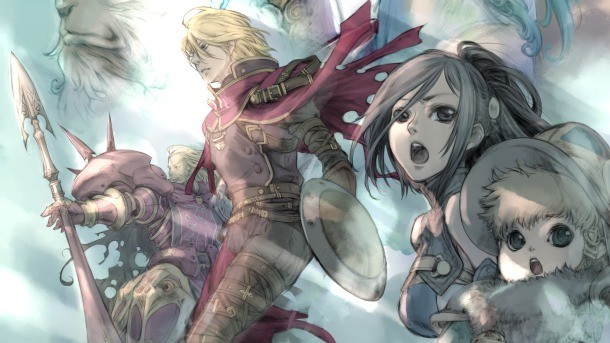Please support Game Informer. Print magazine subscriptions are less than $2 per issue
Editorial: The Incredible Shrinking RPG

As a longtime fan of role-playing games, most of my decisions regarding new console purchases were decided by which system had the best RPGs. Though I loved my SNES, I didn’t think twice about abandoning Nintendo and buying a PlayStation instead of an N64. In retrospect, I absolutely made the right call. Acclaimed series like Final Fantasy, Wild Arms, Grandia, Suikoden, and Persona found their home on PlayStation, making it the unchallenged system of choice for role-playing fanatics.
Today, buying a home console based solely on this genre is practically impossible. The phrase “role-playing game” doesn’t even mean the same thing; successful titles from North American developers like BioWare and Bethesda have become the term’s standard-bearers, and genre boundaries have blurred as traditional RPG elements work their way into shooters, platformers, and fighters. The classic style of gameplay that once drove the juggernauts of the SNES and PlayStation era is now relegated to a sub-genre dubbed JRPG – a name that drives a wedge between Japan-developed titles and the market they once dominated
Their niche status and declining presence on major systems have led some people to lament the death of the JRPG…but I don’t buy it. The genre isn’t dead, you just need to know where to look. Examine the plethora of titles available on DS and PSP and you’ll see that JRPGs are alive and well – they’ve just migrated to handhelds.
Like a once-famous film star resorting to primetime television cameos, some hardcore fans may see this transition as a “look how far they’ve fallen” tale. After all, less than 15 years ago Final Fantasy VII was a pivotal system-selling exclusive for the PlayStation. Today, that series is more active on handheld platforms than major consoles thanks to a stream of remakes and spin-offs. However, I don’t see this shift as a step down for role-playing games; it allows the developers to focus on the things that made me fall in love with the genre in the first place.
For instance, take this year’s release of Radiant Historia on DS. It doesn’t have the flashy cinematics, breathtaking graphics, or jaw-dropping set piece moments that gamers would expect from a high-profile RPG on current home systems. Without having to contend with the complications that accompany a full console release, Atlus delivered a fantastic game that would have fit perfectly in the canon of 16-bit classics. Even without gleaming technical prowess, Radiant Historia had memorable characters, a clever story, and an inventive combat system – which are really the most important areas of any RPG.
I’m not saying that I don’t enjoy the spectacle of big-budget releases like Lost Odyssey or Final Fantasy XIII. I love those types of games when they come around, but the reality of development means that these grandiose experiences take more time and money than ever before – all to develop a game with an uncertain future in a niche market. I’m not surprised or disappointed that the major JRPG publishers have started to see the allure of the handheld space. It allows them to release more games and spend less money without sacrificing the storytelling or gameplay at the heart of the genre.
Even franchises that established a fanbase on consoles have begun transitioning over to DS and PSP. I’m not just talking about throwaway spin-offs, either. Square Enix’s Dragon Quest IX, Sega’s Valkyria Chronicles II, and Atlus’ Shin Megami Tensei: Strange Journey are all full-fledged entries in their respective series.
If the next big installment in the Half-Life or Assassin’s Creed franchises were handheld-exclusive, fans would be disappointed. So why does this approach work so well for JRPGs? Genre devotees seem to have an unrivaled appetite for nostalgia, but I think it goes deeper than that.
The mechanics of these games age incredibly well; unlike FPS or open-world titles, the core experience of a JRPG didn’t change drastically as technology evolved. Even with the 3D capabilities of the original PlayStation, many of my favorite JRPGs on the system – like Xenogears and Suikoden – stuck to their 2D heritage. Maybe that’s why I find it easier to revisit role-playing games than any other genre; I never find myself cringing and asking “How could I have played this?” when popping in a classic 16-bit RPG. Even though the system might be different, I feel the same kind of familiarity and comfort playing one of these titles on a modern handheld.
The role-playing genre has over 20 years of history to draw from, which has resulted in some great original games alongside plenty of remakes and re-releases on GBA, DS, and PSP. The convergence of these titles on handhelds has made it a wonderful time to be a JRPG fan. But what about the years to come? The genre will probably never reach the home console saturation they enjoyed during the PS2 era, and high-profile blockbusters are only getting more expensive to develop. Even the well of remakes will eventually run dry. If we want more original JRPGs that retain the identity and appeal of their predecessors, we’re going to have to be okay with thinking small.
This editorial originally ran in issue 219 of Game Informer.










